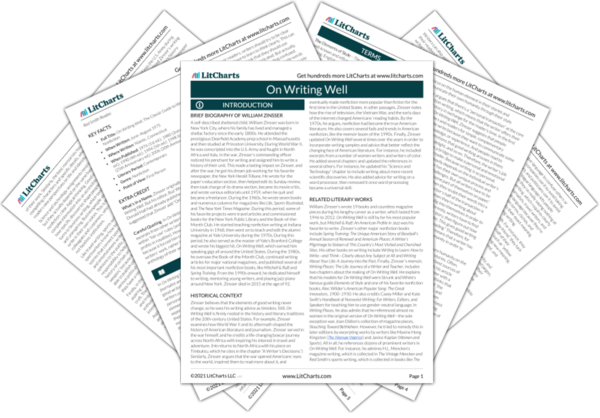Cross’s style is nothing like breezy E.B. White’s, but it’s still clear, inspiring, and suited to his speech’s subject matter. Zinsser shows that Cross is aware of tradition in two ways. First, his speech fits into a longer tradition of American speechcraft, and second, he references shared Connecticut traditions in order to connect with his constituents. His distinctive voice isn’t purely the product of his individual identity—it also depends on the traditions and communities that he belongs to. Thus, Zinsser returns to his belief in imitation: by trying on others’ voices, styles, and tastes, aspiring writers can learn about the influences that have shaped their own identities and decide which of these influences to accept and reject.


